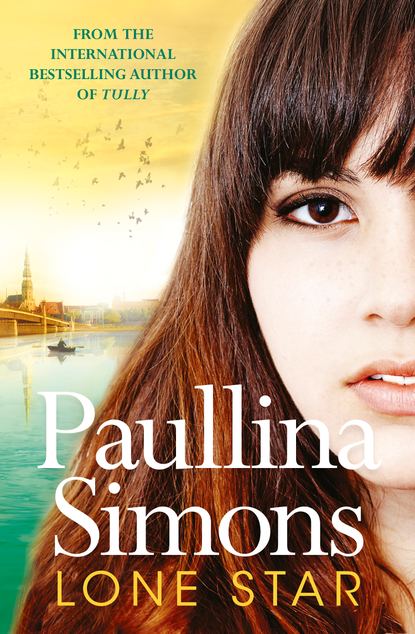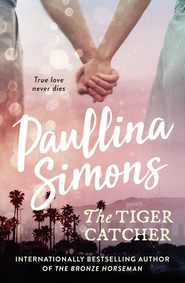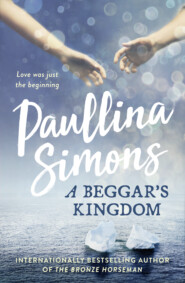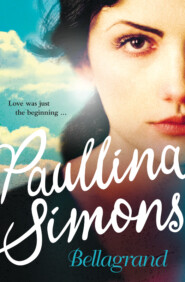По всем вопросам обращайтесь на: info@litportal.ru
(©) 2003-2024.
✖
Lone Star
Автор
Год написания книги
2019
Настройки чтения
Размер шрифта
Высота строк
Поля
“The young girl,” he said in a dramatic voice, “who got all dolled up to feed the elderly vanished one Saturday afternoon. Where did she go? Perhaps her ironed jeans were found in the pond nearby?”
“Why would I lose my jeans in the pond?”
“That’s what I’m trying to get to the bottom of, Haiku,” he said, and guffawed.
He was so silly.
“What does my denim have to do with your story?”
“I don’t know yet,” he replied. “I’m merely collecting information.”
“So I’m not even the end of your story, just a random detail?”
“Nicely punned. I said I don’t know. Look in my notebook—no, not that section, the one in the back that says descriptions. See if there’s anything you like.”
He had written out fifty pages of notes on lakes, junk he had found, birds building nests during spring—and the garden by her house! He was incredibly prolific. Every minute observation was in his spiral.
“Why is my garden here?” In his random musings, he had written about her wine-red tulips, the coral knockabout roses, the orange nasturtium and the hot pink azaleas blooming outside her windows.
“Never know what I might need.”
“Before I vanish,” Chloe said, closing his notebook, “you might want to have me do something amazing or idiotic.”
“Losing your pants is both, don’t you think?” He poked her in the arm as he drove. “Why are you all freaked out about Moody? She’s your grandmother, not Freddy Krueger.”
“That’s what you think.” Chloe sighed. Everyone in the large Devine family lived in fear of Moody. She could not be argued with, or negotiated with. She could not be reasoned with. She believed what she believed, said what she said, commanded what she commanded. I’ve seen too much to bother arguing with the likes of you, was Moody’s standard reply to anyone in her family who dared raise a squawk in opposition. Only Chloe’s father had spoken out against her, and the result of that was that mother and son had been on the outs for the last seven years, since Uncle Kenny died.
The old people became notably enthusiastic when they saw that a tidied-up Chloe did not come alone. “Who is the young man?” Mrs. Van Mirren said with a meaningful smile.
This is Blake, Hannah’s boyfriend, Chloe would say to Mrs. Van Mirren, Ms. Rivers, Mr. Mann and Mr. Warner. They asked where Hannah was. They asked about Mason. They asked when the prom was, and when Europe was. They gave her money. Five dollars, two dollars, seventy-five cents. They would not take no for an answer. This is for your trip, they said. Take pictures. Write things down. Don’t forget. Life is long. You won’t remember if you don’t write things down or take pictures. Are you excited about college? We’ll miss you when you go. We love you. Blake, we love this girl. Take another dollar.
Lupe was last, because she lived the farthest, in New Hampshire, in a tiny hamlet called Jackson, ten miles from North Conway.
Just as Chloe had told Blake, outside a yellow painted storage shed sat Lupe, in a wooden chair planted outside her front door. In the window box under her one white window bloomed purple nasturtiums. “I planted those for her,” Chloe said. Lupe, shriveled like a bald bird in water, gummed a smile and waved. She was white from top to bottom, white hair, white shirt, white bracelets, white pants, white socks, white shoes. As usual, she wore most of her jewelry. If not all her jewelry. Three necklaces, a cross, a dozen jangling bracelets on each wrist, and rings on every finger. When she waved to Chloe and Blake, she trilled like a wind chime.
“Izh thish Mashon?” she said, as if she didn’t have her dentures in.
“No, Lupe, it’s his brother. Blake.”
While Lupe was vigorously shaking Blake’s hand and appraising him, Chloe pulled out Lupe’s lunch, the last one in the hot box, and stepped inside the woman’s one-room house to get a tray and some silverware. Though who was Chloe to tease Lupe about the size of her habitat?
“Lupe, Blake came with me because he’s entering a story contest.” She set the food on a tray in the old woman’s lap. “Did you read about it in the paper? The Acadia Award for Short Fiction. I told him about your box of jewelry.” Chloe poured Lupe some ice tea, put a napkin near her elbow.
“And what, he got interested? He wants it?”
“No, no.” Blake looked mortified. How amusing!
“Young man, I’m joking. Instead of looking for my jewelry, you should find yourself a sense of humor. It would come in more handy.”
“Um, yes, ma’am.”
“Where’s your brother today?”
“At practice.”
“Blake is Hannah’s boyfriend,” Chloe said.
“Who? Oh, Hannah.” The old woman studied Blake intently as she ate. The fork trembled in her shaking hands.
Blake smiled. “I know. She’s too good for me, Lupe.”
“That’s not quite what I was thinking.”
Chloe pulled on Blake’s denim sleeve, and the two of them perched on a nearby bench and kept the woman company while she finished her lunch.
“Has your mother agreed yet to let you go?” Lupe asked.
Chloe shook her head, keeping mum on Moody’s imminent visit.
“She will, though, don’t you think?” Blake said. “I keep telling her.”
Lupe shrugged. “The odds are about even. Don’t count on it, but don’t discount it. I’ve met mothers before. I was one myself until my sons got too wise for my help. Mothers can be an unpredictable bunch.” She took a swig of her ice tea, shielding her eyes from the sun.
“Let me ask you something,” she said to Blake after he had scintillated her with stories of his story, even offering her a peek at his journal. “You say you want to go to Barcelona for research.”
“That’s right, ma’am.” And to Chloe, out of the corner of his mouth, added, “And for other things.”
“Call me Lupe. But can’t the answer you’re looking for be found right here in New Hampshire and Maine?”
“I don’t think so.”
“Sure it can. Answers are found everywhere. And in anything. You just have to know where to look.”
“Barcelona will make for a far more interesting story, don’t you agree? Rather than writing about boring old North Conway.” North Conway, the biggest town in two counties was a two-mile stretch of a straight rural highway. Fifteen traffic lights and Applebee’s dueling it out with Burger King. Pizza Hut against KFC, Baskin-Robbins against Carvel. There were one or two antique shops, an outlet mall, an L.L.Bean, and gas stations. That was the town. And China Chef, of course, purveyor of hot and sour soup that Hannah supposedly placed on people’s tables. How do you find the answer in a town like that?
Lupe insisted. “You can. You can find answers anywhere.”
“I’d like to find them in Barcelona,” Blake said, and Chloe was proud of him for not being too intimidated by a ninety-something woman. Forgetting herself for a second, Chloe almost made a joke. Leaning to Blake, opening her mouth, she almost, almost said—we should introduce Lupe to Martyn, don’t you think? They’re about the same age—before slamming her hand against her mouth. What was wrong with her!
Blake must have liked Lupe because he talked to her for longer than any of the others. And she must have liked him because she kept asking him to do small chores for her. She pointed out that her chopped wood was too far from the fire pit. It was all the way in the back, near the river. Chloe and Blake carried the chopped wood and the iron rack to the front of her yellow house. They set it up near the fire pit, stacked the wood on the rack, covered it with a blue tarp. Lupe looked pleased by their efforts, especially Blake’s. She asked him to build her a fire. She’s my last one, Chloe told Blake, as they collected some branches for kindling. She always keeps me here. She’s lonely, he said, and she likes the company. I don’t mind. “Lupe,” he called to her, “do you know that your fire pit is eroding on one side? The stones have broken off.”
“I know,” she said. “Who’s going to fix it, me? Or my children in California?”
Blake motioned toward the mansion-like house. “Who lives there?”
Lupe shrugged. “A family. They don’t help me. They got their own problems. The husband is sick. He just don’t know it yet. Or don’t want to admit it.”
“How do you know?”











